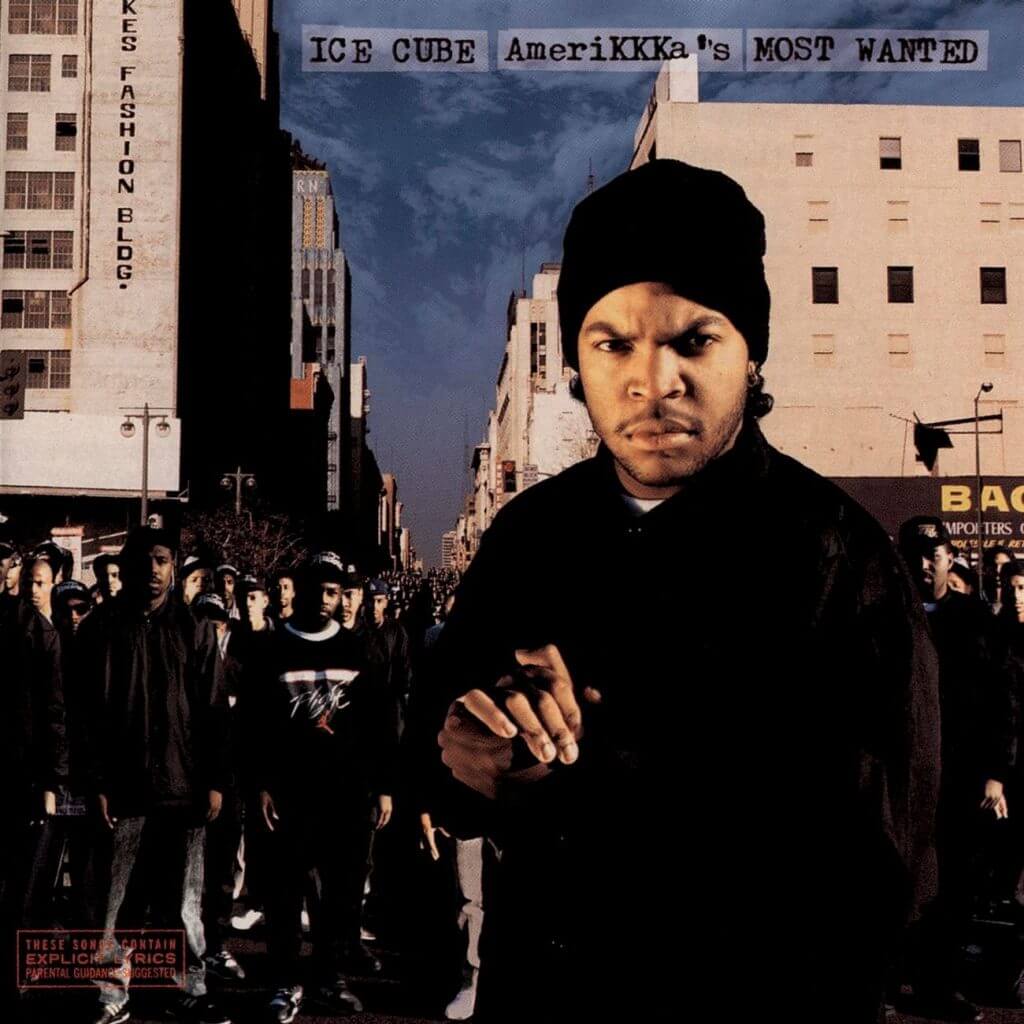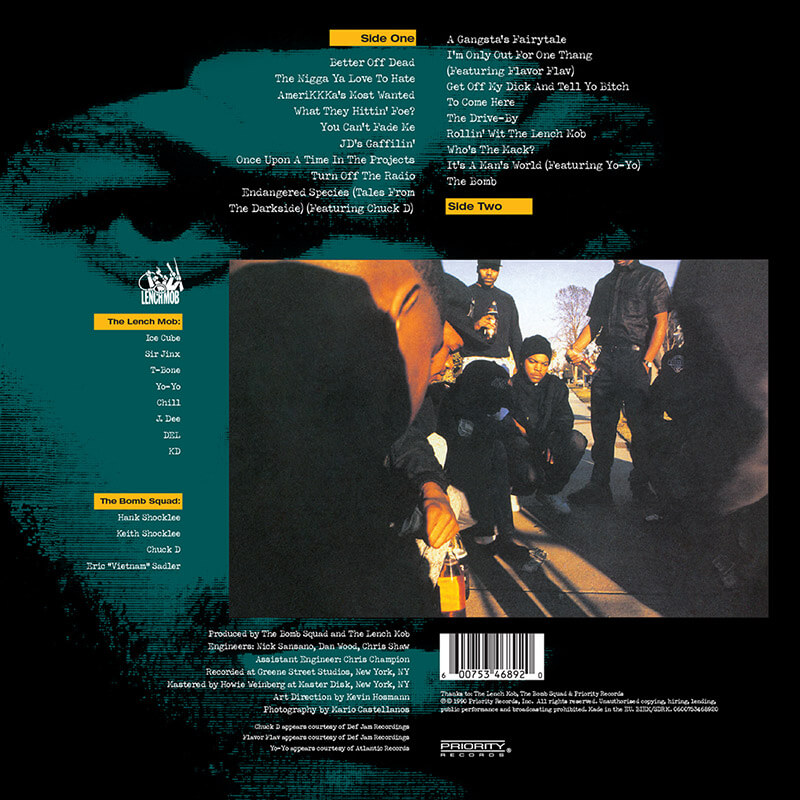
Equal parts horrified and inspired by the double standards and hypocrisies of polite American society, Ice Cube savors his role as fly in the ointment, dangling the thought of black rebellion over his frightened listeners like an older brother dangles spit near a sibling’s forehead. Taking outsider politics and fueling them with bitter resentment, Cube directs his anger at police, the wealthy, Caucasians, women, race traitors, nearly everyone that he isn’t, screaming a misanthropic monologue from atop his soapbox. AmeriKKKa’s Most Wanted would be a merciless slog through a bitter mind, that is, if Cube wasn’t bating us into being appalled, anticipating a serious reaction to his message after the shock and awe wear off.
Dancing the line between amusing and horrifying, O’Shea Jackson’s inner-city exposé plays like a conservative’s nightmare, brimming with a violent bravado and conviction that make flippant remarks about suburban home invasion sound like genuine threats. Inspiring terror isn’t necessarily the point, but it benefits the serious inclinations roiling beneath the surface. By illustrating the most desperate measures of the broke and marginalized, Cube provides a voice for those without one, expressing the fears of existing in an unstable environment, particularly one under the boot of police corruption. It’s a brutally honest, unpleasant vision, willing to rub the listener’s face in the most base content and demand instant feedback. Whether casually talking about kicking a pregnant women in the “tummy” or seeing murder as benign necessity, stomach-turning moments pop up at random, creating a physical response to truly demanding bits of fiction.
This willingness to throw common decency to the wind may make him an asshole, but Cube is never a careerist or blandly commercial, since unflinching bleakness refuses to co-exist with the escapism that occupied early-90’s pop music. He even questions how R&B and Top 40 radio intend to educate their listeners, since the content shares no common ground with the average person and manufactures false hope. Cube even struggles at times for a unifying thread, but wisely shades in the details of his everyday experience (unwanted pregnancy, drug abuse), making reality the most compelling catalyst for revolution.
The Bomb Squad’s sound is as riotous as Cube’s words, but rarely this bouncy and sprightly, forging a friendship between their trademark maelstrom of shrill sound clips and an over-caffeinated funk guitar groove. First impressions fool the ear into assuming these strange bedfellows are shacking up at random, but this is most certainly orchestrated chaos, intended to unnerve and agitate with its endless stream of abrupt fluctuations. Solace comes only in solitary drum passages, grinding like broken machinery and culled from microscopic bits of instrumentation, pared down exclusively for Cube’s best one-liners and sobering moments of clarity.
The mash of disparate elements is tempered a bit by the free-jazz flutter of the composition, which moves from verse to chorus based on Cube’s intonation and generates excitement with its delirious pace and mechanical repetition. “Get Off My D***…” avoids structure entirely, simply looping its damaged guitar snippet ad nauseam while Cube expedites his flow to keep up with the shotgun-kick drum. It’s all terribly fast and reckless until “Who’s The Mack?,” which prefaces G-funk with its elegant, incense-scented flute and ramshackle piano, moving along at a brisk jog. It’s a wise shift in gears, showing the delicate pairing of samples and how this curated body of sounds thoroughly meets the mood and pace of the narrator.
The finest pairing of content and orchestration is “Once Upon a Time in the Projects,” which happens to be the least cluttered and catchiest dish on the menu, teaming with heavy wah-wah guitar and tense percussive rattle. It’s narrative would be satire if Cube didn’t make it seem so matter-of-fact, examining the archetypal characters of LA’s public housing system, making their every absurd action seem trite and ordinary. The culture shock for the listener, particularly those not exposed to the surroundings, may lead to nervous laughter, especially with Cube’s penchant for painting his characters as insignificant buffoons. The irony lies in his exhausted shrug of a vocal track, which opens with a smirk, but ends with hopeless resignation (“Once again, it’s on.”) as a potential date night spirals into an evening in a crack house and two weeks in the county jail.
Plainly addressing the horrors of drug addiction, parental neglect and policy brutality plays like farce but stings like tragedy, especially as Ice Cube depicts the innocent trapped in a cycle fueled by racism and a disparity between the rich and poor. Burying AmeriKKKa’s message beneath an assault of glacial scowls and scare tactics only increases the potency of Cube’s agitprop, which, through its string of insults and provocations, intends to stimulate a response and, hopefully, inspire change.
Ice Cube – AmeriKKKa’s Most Wanted was ranked #11 on Matt Deapo‘s Hip Hop Top 50, a ranking of 50 of the best Hip Hop albums recorded between 1978 and 2006, based on this consideration and these rules.
